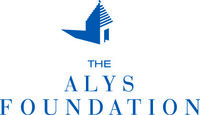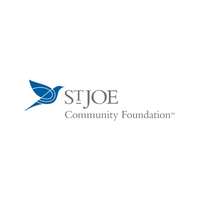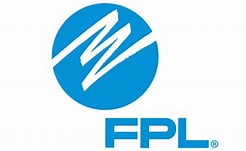Khan in the Classroom: Leveling the Testing Playing Field

- School:
- Freeport High School
- Subject:
- Literacy
- Teacher:
- Rian Lyday
- Hillary Williams
- Students Impacted:
- 120
- Grade:
- 9-12
- Date:
- October 11, 2017
Investor
Thank you to the following investor for funding this grant.
Walton Education Foundation - $1,236.00
Goal
The objective of this grant is to bridge the connection between technology and literacy while building student success on state standardized tests. Khan Academy provides that connection and in multiple studies has proven to be successful for students struggling to make concordant or college level scores on the SAT and/or ACT. The desired outcome will be increasing student scores on standardized tests using literacy skills and development through technologically guided practice. College Board tracked the benefits of the new program and had empirical data to show its success. “New data show studying for the SAT® for 20 hours on free Official SAT Practice on Khan Academy is associated with an average score gain of 115 points, nearly double the average score gain compared to students who don’t use Khan Academy. Out of nearly 250,000 test takers studied, more than 16,000 gained 200 points or more between the PSAT/NMSQT® and SAT” (https://www.collegeboard.org/releases/2017/average-score-gains-on-redesigned-sat).
The founder of Khan Academy states this about the new SAT feature, “Our mission at Khan Academy is a free, world-class education for anyone, anywhere, and college readiness is a crucial part of that,” said Khan Academy Founder and Executive Director Sal Khan. “We partnered with the College Board because we wanted to help students achieve their goals through hard work and real learning, regardless of how much money they have. We’ve been humbled by the great reception Official SAT Practice on Khan Academy has received so far, but this is just the beginning. We’re in this for the long haul and are invested in building the world’s best SAT resources — that just happen to be free” (https://www.collegeboard.org/releases/2016/One-Year-Since-Launch-SAT-Khan-Academy-Leveling-Playing-Field).
Another statistical example of Khan Academy’s success is the following study:
Results from the 2010 Los Altos School District pilot test, which used the California Standards Test (CST) to measure performance:
The CST's grading scale was... Advanced
Proficient
Basic
Below basic
Far below basic
• The number of 'advanced' & 'proficient' students in the Los Altos nearly doubled from 23% to 41%.
• The worst 6% of students, namely those in 'remedial math', drastically improved their performance from the previous year, leapfrogging from 'far below basic' to 'advanced'.
• Zero students performed in the lowest category 'far below basic'.
• 12% percent of students who had been 'basic' improved to 'proficient'.
Standards effected by the grant:
• LAFS.910.RI.4.10 By the end of grade 9, read and comprehend literary nonfiction in the grades 9–10 text complexity band proficiently, with scaffolding as needed at the high end of the range. By the end of grade 10, read and comprehend literary nonfiction at the high end of the grades 9–10 text complexity band independently and proficiently.
• LA.1112.1.7.1 - use background knowledge of subject and related content areas, prereading strategies (e.g., previewing, discussing, generating questions), text features, and text structure to make and confirm complex predictions of content, purpose, and organization of a reading selection;
• LA.1112.1.7.2 - analyze the author’s purpose and/or perspective in a variety of text and understand how they affect meaning;
• LA.1112.1.7.3 - determine the main idea or essential message in grade-level or higher texts through inferring, paraphrasing, summarizing, and identifying relevant details and facts;
• LA.1112.1.7.4 - identify cause-and-effect relationships in text;
• LA.1112.1.7.5 - analyze a variety of text structures (e.g., comparison/contrast, cause/effect, chronological order, argument/support, lists) and text features (main headings with subheadings) and explain their impact on meaning in text;
• LA.1112.1.7.6 - analyze and evaluate similar themes or topics by different authors across a variety of fiction and nonfiction selections.
What will be done with my students
As technology is not readily available for intensive reading classes, this grant will benefit students for multiple years as they travel through reading and hopefully achieve their score to meet graduation requirements. This school year, 2017-18, 120 students will benefit from this grant.
Activities linked to the grant’s objective include but are not limited to the following, which will take place within the intensive reading classroom on a daily basis:
• Get a personalized plan tailored to their strengths and weaknesses based on their previous PSAT/NMSQT® or SAT results or our diagnostics;
• Hone their skills with thousands of practice questions, hints, and video lessons;
• Take up to eight official full-length practice tests online or on paper;
• Receive instant feedback and adaptive recommendations for what to practice
• Set a personalized practice schedule to get reminders for when to practice
• Review expert tips and strategies for the test
Practice with the following skills:
• Text Complexity: The passages/pair on the SAT Reading Test represent a specified range of text complexities from grades 9–10 to postsecondary entry.
• Information and Ideas: These questions focus on the informational content of text.
• Reading closely: These questions focus on the explicit and implicit meaning of text and on extrapolating beyond the information and ideas in a text.
• Determining explicit: The student will identify information and ideas explicitly stated in text. meanings
• Determining implicit: The student will draw reasonable inferences and logical conclusions from text. meanings
• Summarizing: The student will identify a reasonable summary of a text or of key information and ideas in text.
• Understanding relationships: The student will identify explicitly stated relationships or determine implicit relationships between and among individuals, events, or ideas.
• Analyzing text structure: These questions focus on the overall structure of a text and on the relationship between a particular part of a text and the whole text.
• Assessing reasoning: The student will assess an author’s reasoning for soundness.
• Analyzing evidence: The student will assess how an author uses or fails to use evidence to support a claim or counterclaim.
Benefits to my students
This project will be evaluated by students and one classroom teacher by setting goals based on standardized test scores. Students will use the AVID goal setting sheet to mark their original score, where they want to be by the middle of the year, and where they want to be by the end of the year, along with an action plan to meet the ultimate objective. SAT and FSA scores will be used as the main measureable objectives with STAR reading scores used for interval checks. Time on Khan Academy will be tracked to measure the correlation between time spent practicing and score increase. “20 hours of practice is associated with a 115-point average score increase from the PSAT/NMSQT to the SAT, nearly double the average gain of students who do not practice on Official SAT Practice” (https://www.khanacademy.org/about/impact). All 120 students enrolled in intensive reading classes will utilize Khan Academy.
Khan also tracks student progress and provides achievement reports in the following ways:
• Challenge Completion-When your students complete one of the coding challenges, we will award them points and show that in their recent activity feed and activity graph. You can see the graph on the "Activity" tab in the "Student Progress" viewer, and view the feed on the student's individual profiles.
• Talk-through Watching-When your students watch one of the talk-throughs (our approach to videos), we will log that just how we log the videos elsewhere on the site, noting amount of time and points earned. You can see that on the "Videos" tab in the "Student Progress" viewer, as well as on the student's individual profiles.
• Weekly Reports-Every week, Khan Academy emails coaches with digests of their students' activity for that week. Those reports will also include the challenge and talk-through progress.
Mastery Badge-Once your student has completed all of the coding challenges in the entire Intro to JS curriculum, they will receive a badge. You can see the badge by viewing their profile, clicking "Badges", and then selecting "Challenge Patches".
Budget Narrative
The items to be purchased are 4 iPads: Space Gray Storage 32GB1 Connectivity Wi-Fi Change(Connectivity) for $309.00 each from Apple with the teacher discount.
Items
| # | Item | Cost |
|---|---|---|
| 1 | Space Gray Storage 32GB1 Connectivity Wi-Fi Change(Connectivity) | $309.00 |
| 2 | Space Gray Storage 32GB1 Connectivity Wi-Fi Change(Connectivity) | $309.00 |
| 3 | Space Gray Storage 32GB1 Connectivity Wi-Fi Change(Connectivity) | $309.00 |
| 4 | Space Gray Storage 32GB1 Connectivity Wi-Fi Change(Connectivity) | $309.00 |
| Total: | $1,236.00 |






Share
Please share this page to help in fulfilling this grant.
Email to a Friend